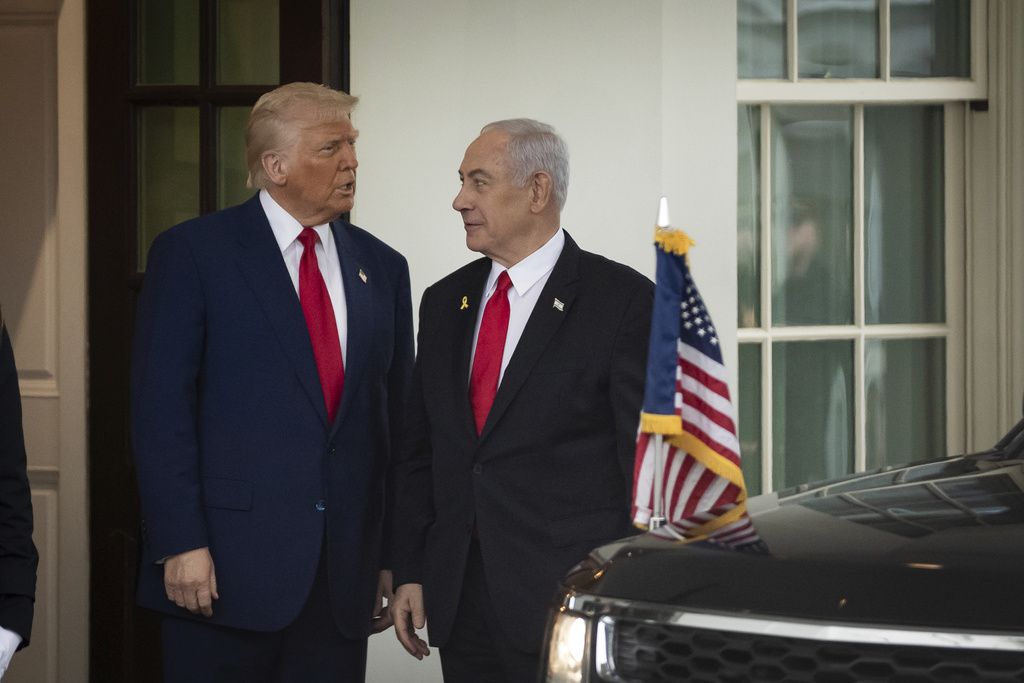Trump Tearing Up the Iran Deal Set Off a Dangerous Chain Reaction of Nuclear Instability

(Photo by Allison Bailey/NurPhoto via AP)
When President Donald Trump pulled the United States out of the Joint Comprehensive Plan of Action (JCPOA) — commonly known as the Iran nuclear deal — in 2018, many warned that it would set off a chain of events that could destabilize the Middle East.
U.S. strikes against Iranian nuclear sites on Saturday underscored just how prophetic those warnings were. We’re entering a brave new world in which Russian officials are now threatening to provide nuclear warheads to Iran.
The JCPOA, negotiated under President Barack Obama and signed by Iranian officials, the U.S., and five other world powers in 2015, imposed strict limits on Tehran’s nuclear program in exchange for lifting economically crushing sanctions.
According to the International Atomic Energy Agency (IAEA), Iran was in full compliance with its obligations under the agreement before the U.S. withdrawal in 2018. That withdrawal was celebrated by hawks who argued that the deal was insufficiently tough — and by Trump himself, who derided it as the “worst” deal ever. But most U.S. allies, including Britain, France, and Germany, supported the agreement as the best option to contain Iran’s nuclear ambitions.
What followed was as troubling as it was predictable.
Within a year of America’s unilateral exit and the reinstatement of harsh U.S. sanctions, Iran began exceeding its JCPOA-enforced enrichment limits and stockpiling highly enriched uranium, moving much closer to a bomb — a reality noted in multiple IAEA reports and covered by Reuters, BBC, and The Wall Street Journal. This erosion of trust set off a tit-for-tat dynamic: Iranian nuclear advances prompted more talk of preemptive strikes by Israel, which now seems to have culminated in military action approved or led by Washington.
Supporters of Trump’s interventionist strategy argue that this weekend’s strikes were necessary to prevent Iran from becoming a nuclear-armed adversary bent on threatening U.S. interests and those of its ally, Israel, which is an entirely fair and reasonable position. But one can also argue that this direct confrontation — born of Trump’s 2018 decision — has drastically destabilized the region and may draw the United States into a protracted, unpredictable conflict with Iran at a time of profound global instability.
More troublingly, this tit-for-tat escalation has far-reaching geopolitical implications. Every nuclear-capable nation is watching the world’s most volatile region descend further into crisis, which experts say could encourage other countries to pursue their own nukes. A Brookings Institution analysis published in 2023 warned that America’s credibility in upholding international agreements had been permanently damaged, making future diplomatic deals less likely to stick, especially with rogue states like North Korea.
An Iranian nuclear threat is dead serious, and Trump’s actions to bomb nuclear enrichment facilities are, in my opinion, defensible on their own. Mediaite’s Isaac Schorr laid out a compelling argument in praise of the decision. That said, the blinking red light signalling the urgent need to dismantle this threat is a direct result of Trump’s killing the JCPOA.
Whether one agrees with Trump’s hardline posture or not, this weekend’s strikes highlight the immense cost of undoing international agreements with no viable alternative. The risk of all-out regional war — one that could easily spiral into a global crisis — has rarely been higher. And if the path to this point was paved by the impulsive withdrawal from an imperfect but workable nuclear accord, then one must ask: Was the gamble really worth it?
This is a question Americans, Israelis, and Iranians will live with for decades. What began as a political talking point in 2018 is now a clear and present danger — one that is making the world a far more unstable and dangerous place.
This is an opinion piece. The views expressed in this article are those of just the author.





Comments
↓ Scroll down for comments ↓